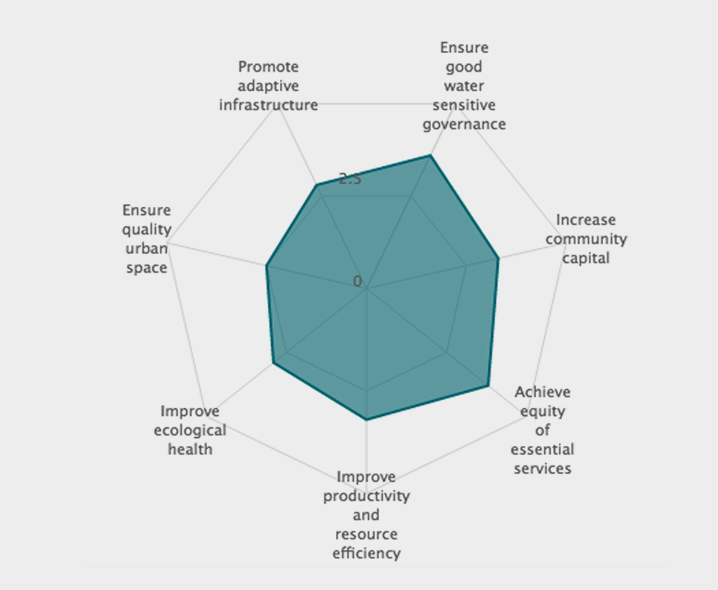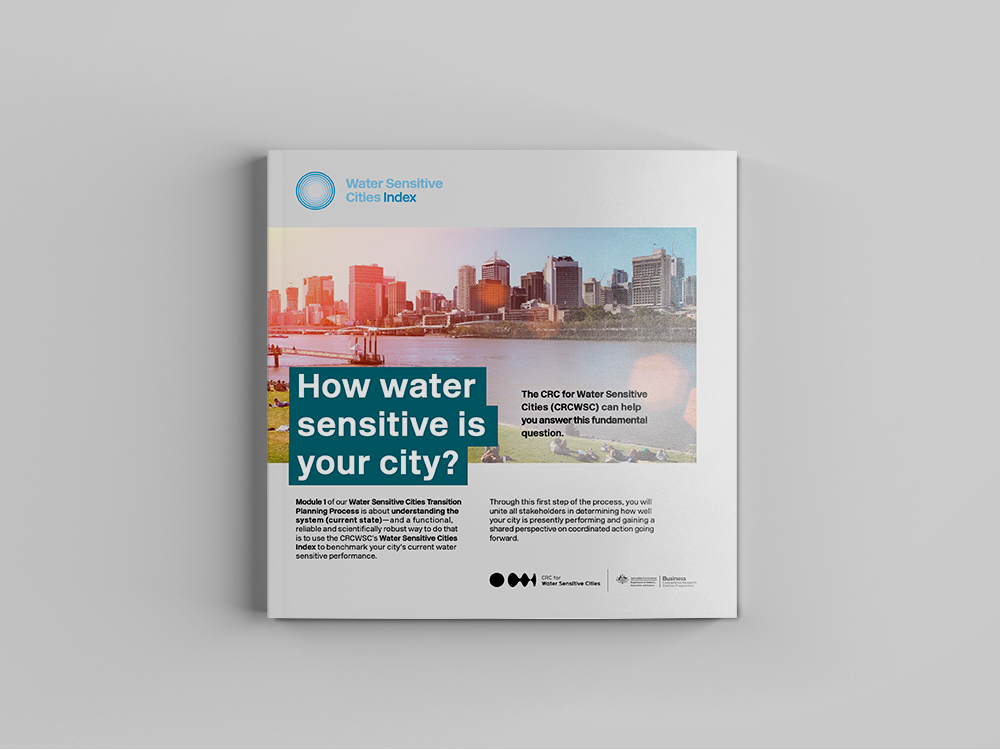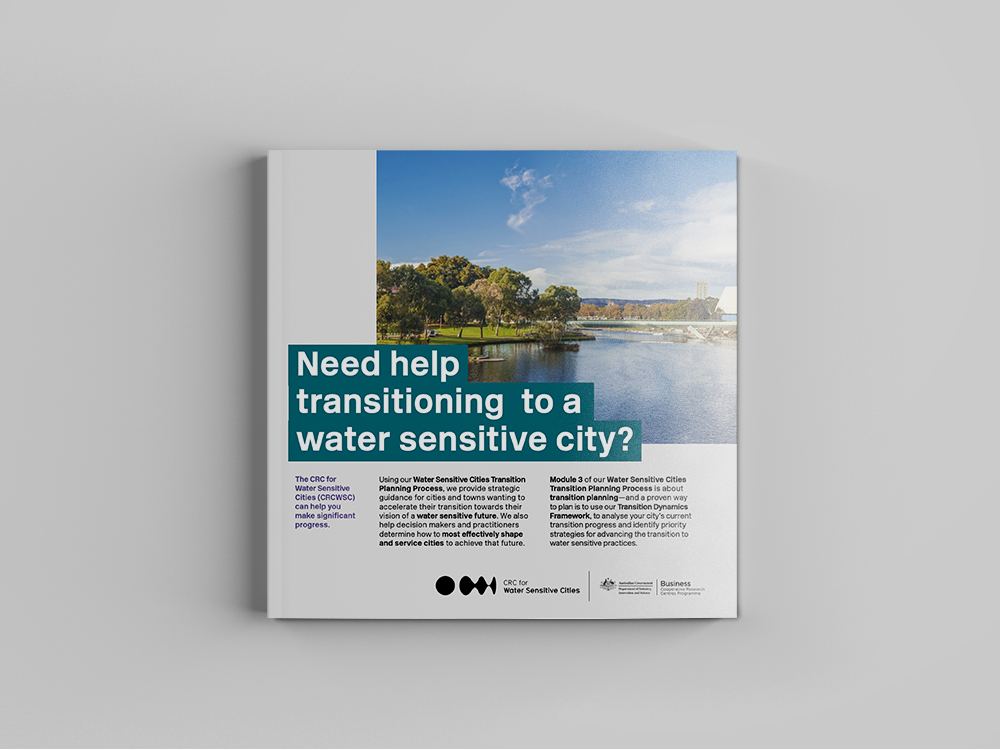Water Sensitive Cities Index
Benchmarking cities against urban water indicators
Interested in benchmarking your city?
For more information email: wsc-index@crcwsc.com.au
Why is it needed?
The Urban Water Transitions Framework identifies six distinct developmental states that cities may move through on their path towards increased water sensitivity. A city’s journey through these states is not linear and may involve leapfrogging, a concept that allows developing cities to learn from more developed cities in order to accelerate their transition to more desirable states.
Urban Water Transitions Framework
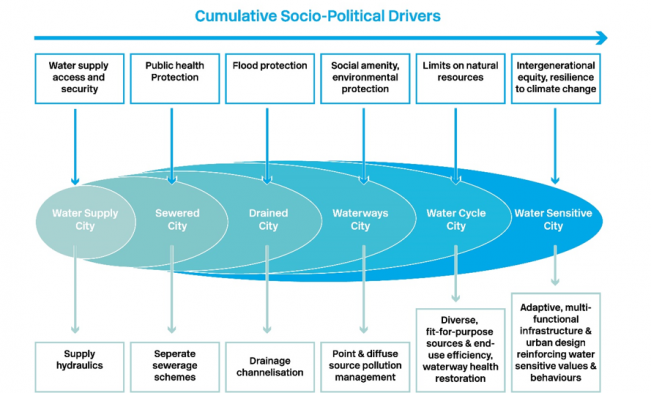
Developing a shared perspective of water today in relation to future water sensitive aspirations is critical in establishing the understanding, motivation and capacity amongst stakeholders to drive their water sensitive city transition. The CRCWSC has developed the Water Sensitive Cities Index (WSC Index) tool to guide coordinated action amongst stakeholders and to assist cities in navigating their water sensitive city journey.
What is it?
Each of the 34 indicators are scored on a 1-5 rating scale in a collaborative workshop process. The data is then entered into a web-based platform that can filter the results according to what is most useful for the user.
The WSC Goals
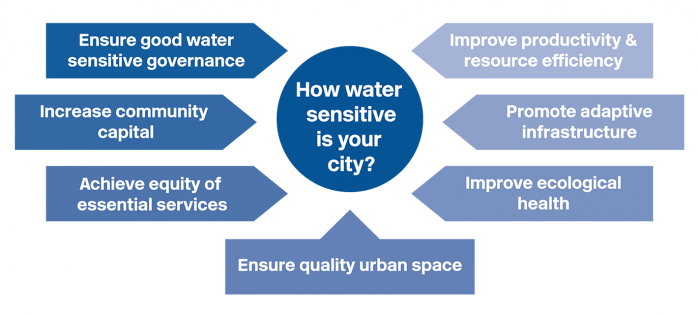
How are the results presented?
WSC Index goals
Urban Water Transitions Framework
Water Sensitive City Outcomes
WSC Index Applications
The WSC Index has been applied in a number of different contexts across Australia and internationally, and also at multiple different scales (local government areas, regional cities, capital cities). The map below shows the location of cities and councils that have been benchmarked to date.
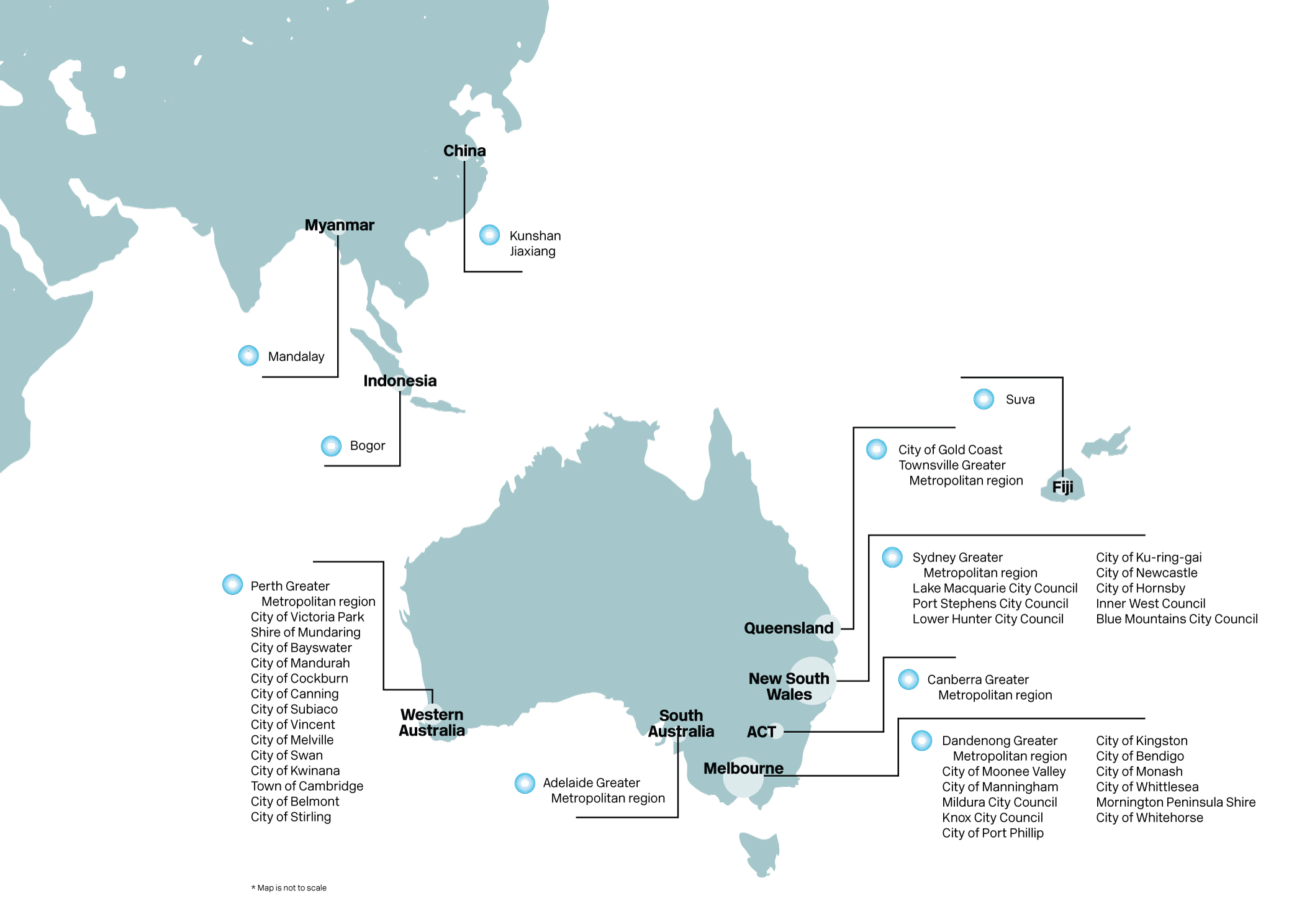
Interested in benchmarking your city?
For more information or international engagement opportunities please email: wsc-index@crcwsc.com.au
Accredited WSC Index providers in Australia:
NSW
- Richard McManus - Alluvium Consulting
- Tom Patterson - GHD
- Jan Orton - Mosaic Insights
- Sadeq Zaman - NSW Department of Planning, Industry and Environment
QLD
- Fiona Chandler - Alluvium Consulting
- Kim Markwell - E2Designlab
- Sally Boer - E2Designlab
- Luke McPhail - Water Technology
- Shiv Umapathi - Water Technology
VIC
- Jonathan Ho - Alluvium Consulting
- Leon Harvey - Create Develop
- Georgie Wettenhall - DesignFlow
- Sara Lloyd - E2Designlab
- Lindsey Brown - GHD
- Ian Johnson - Ian Johnson Associates
- Myles Coker - GHD
- Gayani Chandrasena - Water Technology
- Rob Catchlove - Wave Consulting Australia
SA
WA
- Helen Brookes - Urbaqua
- Shelley Shepherd - Urbaqua
- Rebecca Epworth - Urbaqua
- Halinka Lamparski - Urbaqua
- Melissa McGrath - Josh Byrne & Associates
- Adele Gismondi - Water Corporation
- Amanda Best - Water Corporation
International accredited WSC Index providers:
New Zealand, India, Europe, United States, Canada, Mexico and Chile
- Please email wsc-index@crcwsc.com.au
What are the benefits?
- A shared understanding of how water is managed today
- Improved understanding amongst stakeholders of the range of outcomes associated with becoming a water sensitive city and the types of solutions that are needed
- Insight into local areas of strength and weaknesses in relation to becoming a water sensitive city
- A useful starting point to deliver the CRCWSC’s Transition Planning Process
Interested in benchmarking your city?
We run a series of workshops, with online access to the web tool, so that participants can review benchmarking results, as well as plan and track progress.
For more information please email: wsc-index@crcwsc.com.au
